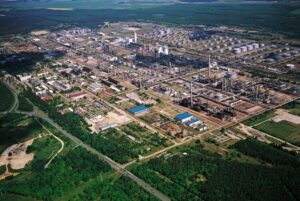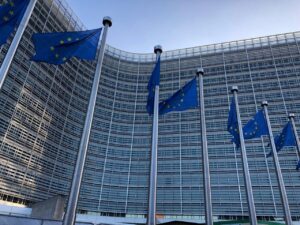The Management Committee of Gazprom summarizes the year 2017. In the press release there is no mention of Nord Stream 2. What can this mean? – Wojciech Jakóbik writes , editor-in-chief of BiznesAlert.pl.
Cisza about Nord Stream 2
In the Russian Gazprom press release summarizing the passing year appeared the information about the most important events of this period. The Russian consortium boasts that it exported 179.3 billion cubic meters of gas in 2016. This year the trend was maintained, and by November 22ed the company had sold 170 billion cubic meters abroad, exceeding the result from the same period a year earlier by 13.3 billion cubic meters.
Gazprom also boasts the construction of new export pipelines. It mentions the Turkish Stream pipeline, which is consistently referred to by the Russians as the Turk Stream, as well as the Siberian Power to China. In the context of this second project, it mentions the additional agreement of Gazprom-CNPC that deliveries through the new route will start on 20 December 2019.
The Russian giant also mentions the problems of Renewable Energy Sources in Germany, which have resulted in the need to use gas and coal power generation adequacy, including those that have been planned for the closure, as well as from imports of electric energy. – This situation clearly illustrates the weaknesses of too fast integration of RES in the German power system – the authors of Gazprom report assess.
Russians also refer to the LNG market. In their opinion, 2017 maintained export trends from the US to South American countries and the Asia-Pacific region. Over the past ten months, only one investment decision has been taken on the construction of an export terminal – Gazprom points out, for which liquefied gas can be a competitor imposing a price pressure.
Participants in the committee’s meeting emphasized that 2017 did not affect market trends „in a significant way”. The conclusions were submitted to the Gazprom Board of Directors.
The great absent, at least on the information layer, remains the Nord Stream 2 pipeline from Russia to Germany, which the Russians originally wanted to launch by the end of 2019. Although Gazprom continues to argue that the date is certain, the mentions of the project in the information from the committee’s meeting are missing for unknown reasons.
Nord Stream 2 has problems
Why Gazprom does not want to boast about it? Could that mean that it allows for the possibility of failure? Management committees in companies are responsible before the shareholders, for setting strategic objectives, but also for their implementation, also in terms of financing. They also ensure the compliance of the activity with regulatory and legal requirements.
The committee’s message can therefore be considered as a prerequisite for suspicion that Gazprom has a problem with Nord Stream 2 in these areas. This would be another confirmation of the problems reported by the media: the threat of US sanctions, the EU’s legal corset, the withdrawal of lenders due to political risk. This time, however, the confirmation would come from the highest levels of company management. Would the Management Committee decide on such a signal? How bad would it be if in the defense of their own credibility against the shareholders it would have to erased the key project, Nord Stream 2, from the summary?
Given the specifics of decision-making and the loose approach to institutional mechanisms in the Russian system, it is worth to accept the committee’s information with reservations, as well as any other signals from Russia. At the same time, also on November 27th, representatives of Gazprom announced at TASS that more than 1500 km of pipes had been prepared for the construction of Nord Stream 2. That is 60 percent of the demand. The main tenders for pipes, other materials, logistics and concreting also ended. Russians are still waiting for environmental permissions in Russia, Finland, Sweden, Denmark and Germany.
The dispute over the Nord Stream 2 pipeline has led the European Commission to review the gas directive in such a way that it subordinated to the European legislation the export projects, such as the aforementioned Gazprom’s investment. It is not known, however, whether the European Council along with Germany, would consent to this idea. Their power engineering companies recognize the potential for cooperation with the Russians and hope for cheap gas from Nord Stream 2. They are not convinced by the concerns of the critics, such as Poland, who warn against increasing dependence on gas from Russia. According to the European Commission, after the launch of the new gas pipeline, the German market’s dependence on Russian raw materials would increase to 80 percent.








